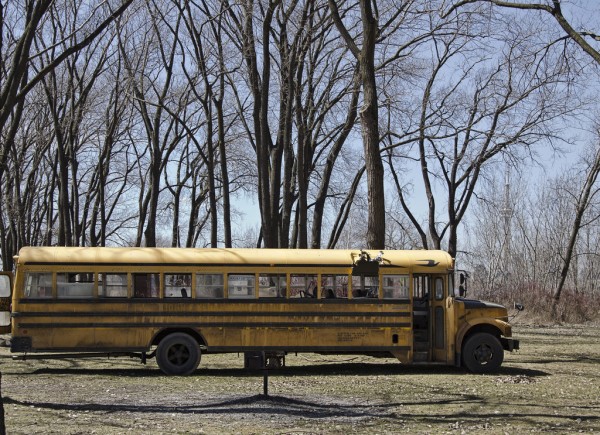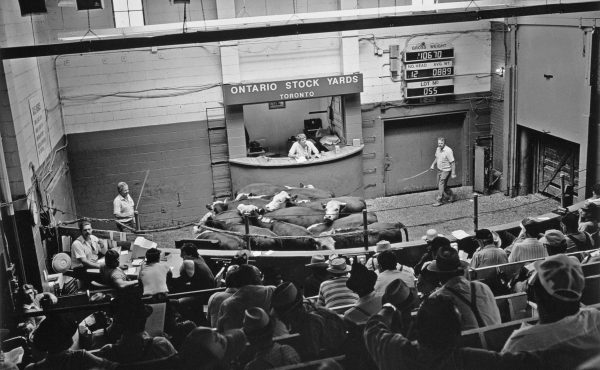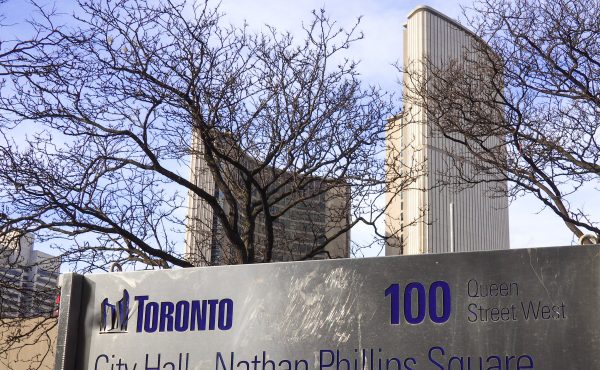
If Premier Kathleen Wynne truly had the courage of the convictions that made her a great education advocate a decade ago, she’d ditch the measured calls for an investigation into the TDSB’s outrageous problems (here, here and here) and instead appoint a tough, veteran supervisor to thoroughly clean house at 5050 Yonge Street before letting the new trustees anywhere near the place.
What’s more, if she had the guts to fix an institution that has been mostly broken since Mike Harris amalgamated the city’s six school boards in the late 1990s, Wynne should think hard about reforming a governance model that has failed abysmally to provide responsible oversight to Canada’s largest urban school district.
Lastly, if mayor-elect John Tory genuinely wanted to repair Toronto’s increasingly severe social divisions, he’d march up to Queen’s Park and tell Wynne to hand this most crucial job to the City. It’s time for some adult supervision.
It’s anyone’s guess whether either Wynne or Tory have the jam to take on the monumental challenge that the school board poses; I’m not holding my breath, especially with the latter. But let’s not fool ourselves: the remarkable revelations from the Globe and Mail’s investigative team constitute not just a C-suite scandal, but evidence of extensive rot inside a $2 billion-a-year organization responsible for educating about 250,000 children.
A great many of whom are living in abject poverty.
As far as I’ve seen, no one has yet connected the TDSB’s crisis with the extremely disturbing findings of the recently released report [PDF] on child poverty in Toronto, jointly produced by a coalition of groups.
Allow me. That study found that almost three in 10 children in this city, Canada’s wealthiest, live in families that struggle to make ends meet, with that proportion skyrocketing to as much as 50% in some high-needs neighbourhoods. Suffice it to say that 100% of these children are or will be in the public school system, and the vast majority will be enrolled in the TDSB.
The geography of child poverty in Toronto — and therefore in Toronto schools — is highly racialized, as the report makes clear:
Recent data from the Toronto District School Board echo these stark differentials; from Junior Kindergarten to Grade 6, fully 48% of black children and 56% of Middle Eastern children lived in families with incomes of less than $30,000 a year, compared to only 9% of white children.16 Similarly, 36% of white children in Grades 7-12 had parents in professional or senior management positions, compared to only 12% of black children.
It also outlines the corrosive and ultimately cyclical relationship between poverty and education, with the former contributing to problems with the latter, e.g., low readiness-to-learn indicators for pre-school-age children. These children, according to the report, are (not surprisingly) less likely to be involved with extracurricular activities than their counterparts from more affluent households. And on and on.
TDSB officials won’t be surprised by these findings; indeed, the board produced a lot of the research that went into the report. But for reasons that defy comprehension, this same organization has become consumed with inane sideshows — stupid little money-making adventures, like the sports bubble at Central Tech or the One-Stop electronic billboards in some schools — as well as seriously smelly executive decisions, namely the Confucius Institute deal with the Chinese government.
The salient detail in all the ensuing uproar — the ousting of former chair Chris Bolton, the bubbling controversy over TDSB executive director Donna Quan’s raise, the forcible confinement charge by Quan against trustee Howard Goodman, the public meetings that descend into screaming matches — is that the board obviously has no emergency hand brake.
It took a team of investigative reporters to unearth all this muck. A well-governed institution would have the checks in place to defuse these kinds of ticking grenades before they turn up as sensational scandal pieces in the media.
A well-governed institution, moreover, would have the ability to hire top-notch administrators to serve as directors of education (the TDSB’s corner office has been populated in recent years by mediocre bureaucrats and a serial plagiarist). And it would have found a way to confront the outrageous fundraising skews that see huge sums of parental dough flow into schools in affluent neighbourhoods, while the ones serving low-income areas, and poor children, go without.
The response from Queen’s Park has been tentative, at best. But let’s think about how all this salacious news hits the ears of parents with kids in the system. As someone who’s had two children in the TDSB for over 15 years, I can say that these stories, in a strange way, seem to re-confirm what I’ve experienced over the years, which is a system that is almost incapable of managing itself in a rational way.
I don’t know a single parent who feels happy about their dealings with the TDSB. Everyone has a horror story, or several. To have children in the system is to have a co-dependent relationship with an organization that all too often seems incapable of dealing with the sorts of issues that drive parents and children crazy: an abundance of ill-equipped teachers; a lack of support for the excellent ones; antiquated teaching materials; and administrators deeply dedicated to the cause of deflecting criticism and papering over problems.
Upper- and some middle-class parents, however, have choices. Do these scandal-mongering stories in the paper cause parents with means to reconsider their patronage of the non-denominational public system? Absolutely. The parents of low-income children, by contrast, don’t have those kinds of choices: they must put up with the TDSB and its endless crises.
Which brings me back to the child poverty statistics and the broader story they tell about this city. Besides the roads, TTC vehicles and the ERs of larger hospitals, Toronto’s classrooms remains the only public spaces in our city where people from a broad cross-section of society engage with one another. Though we take that fact of civic life for granted, the collective value in these shared experiences for children and families from such varied backgrounds is an enormously important asset for this city, and we mess with it at our peril.
And yet we do. The political leaders have all seen David Hulchanski’s Three Cities maps, and the way they demonstrate how Toronto has sorted itself into rich enclaves along the subway lines surrounded by large and expanding swaths of poverty everywhere else.
The TDSB, because it still serves a large proportion of families with school age children, should ideally function as a unifying force to counter the socio-economic segregation that has increasingly divided Toronto. Instead, this deeply flawed organization may in fact be accelerating the social disintegration — a bleak and deeply ironic outcome.
Tory and Wynne are uniquely positioned to slow and perhaps even reverse a worrisome dynamic that could be widening the city’s divisions. But they’ll need to be bold. The media’s done the investigation part. Now the leaders have to lead.





4 comments
Don’t just blame the Board and the administration. Blame us, the barely informed electorate for voting for these trustees. Next round will include Michael Ford – a truly depressing outcome of democracy at its worse.
Also, put some blame on yourselves the media for not pummeling us with informative pieces before they reach scandal stage. I know they don’t get the clicks like Rob Ford’s 4th round of chemo but……..
Side note – I don’t think this article would have been written if Hudak and D. Ford held the balance of power.
thomas> There have been stories about the TDSB board in the Star and otherwise for years now. They’re there, “you” didn’t click on them….
I’m not sure I understand how centralizing decisions for Toronto’s schools in Queens Park or City Hall–bastions of ethical and sound decision making they’ve proven to be in the past five years–will make the civil infrastructure of schools better.
I also don’t understand why the issue of ever-growing teacher and bureaucrat salaries isn’t connected to the very poor funding for anything and everything else in the school system.
I do think a way to get better trustees would be to pay them more than a pittance, which only serves to encourage partisan hacks looking for little more than name recognition to run for the job. Perhaps we should pay Trustees the same amount as teachers.
R.
If ever there was a time for a bold move this is it. It is time for a reset. Integrating the school system, parks and recreation daycare and the library system into a comprehensive approach to eradicating child poverty while engaging the public in a much more imaginative way around governance would be a significant opportunity for the city.